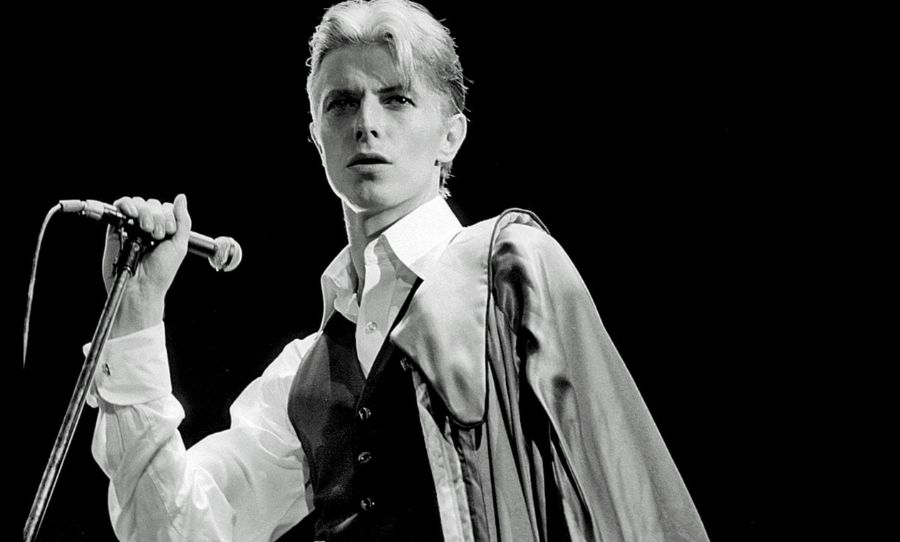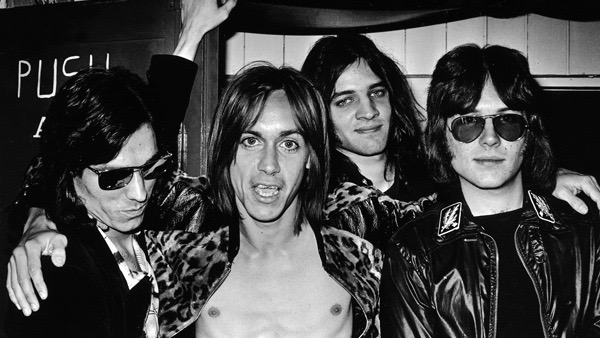Celebrate the tenth birthday of Happy’s print magazine with a look back on one of our most thought-provoking issues.
We’re nearing the ten-year anniversary of Happy’s print magazine, which is nothing short of a nostalgia trip here in the office.
In the spirit of looking back, we’ve been sifting through the print issue archives for an ultimate walk down memory lane. Last month, we dug through our records to bring you our starry debut issue with cover star Courtney Barnett.

Now, the archives have delivered what was perhaps our most thought-provoking issue in the form of 2019’s Issue 13, titled The Outsider.
The explorative issue saw us dig deep into what it means to be an outsider, both in the music industry and in culture writ large.
It included interviews with nonconformist bands like The Bouys and C.O.F.F.I.N, and retrospectives on the rule-breakers of the past like The Regurgitators.
For his part, writer Riley Fitzgerald offered his thoughts around the anatomy of a musical outsider with an insightful feature story titled ‘Sinner, Outcast, and Leper Messiah’. Check out the thought-proving piece below.

Sinner, Outcast, and Leper Messiah
By Riley Fitzgerald.
Earlier this year, I interviewed a controversial artist named Kirin J. Callinan. While his words never went to print, his thoughts stuck with me.
“I think I’d much prefer to be divisive than in the middle,” he shared when asked to elaborate on the motivations behind one of several of his provocative acts.
“I’ve never really fit in and I take strength from that. Being different, being a freak, being an outsider is something that I have revelled in my whole life. And I learnt very quickly that I was liked for that.”
Even though the justification for his acts still evaded me, I found myself connecting with what he said. “It became a source of strength as opposed to a vulnerability.
I guess that carries into my work. It’s also just wanting to emulate my favourite artists. Everything l’ve ever liked has been, at the very least, unique or singular – stood out on its own. That’s what attracted me to it.”
The role of an outsider is to be one who follows their own set of rules. To many, they come across as complex and difficult. By others they are praised, beloved, worshipped, and desired. Wherever you stand, they demand attention.
When Bob Dylan sang about gangster Joey Gallo in a 1975 song called Joey, he described Gallo as, “Always on the outside of whatever side there was.”
When Dylan was asked why that was, he answered, “Just because.” 13 years before this, actor James Dean played the character Johnny in a film called The Wild One.
When Johnny was asked what he was rebelling against, his reply was a simple one, “What’ve you got?”
Outsiders live within society yet are forever isolated from it. The majority has provided them an aspirational model for life, one in which hard work, chastity, and piety pays off.
To the outsider the realities of this promise wear thin. Cult songwriter Daniel Johnston died in September. I was in a bar a few days later.
A local band started playing one of his songs, a cover of True Love Will Find You In The End. Johnston was an archetypal outsider.
Like so many of his kind, obsession, delusion, and emotional instability fuelled him. His death ended a lifelong struggle with mental illness.
So too did the passing of Roky Erikson in May. Erikson’s death, as with Johnston’s, has been his greatest publicist. Most outsiders are only fully appreciated once they’re gone.
Not all though. Iggy Pop was an outsider. Now he’s an institution. Nick Cave is another who’s transitioned from black sheep and junkie to auteur.
Both released critically celebrated and commercially successful albums this year, yet their most significant recordings, the ones born from the fiery throes of self-destructive youth, have only been met with acclaim well after their time.
Why does recognition take so long? The main reason is because, whether by nature or by design, outsiders cast their nets towards the future.
It may take years, decades, or even centuries – think of Johann Sebastian Bach – for the brilliance of an outsider’s work to shine through or align with the sentiment of the present.
Captain Beefheart is another outsider. Writing of Don Glen Viet’s Trout Mask Replica in 1980, rock critic Lester Bangs praised the record. “Then and now it stands outside time, trends, fads, hypes,” Bangs implored.
Rock’s most famous critic then suggested that the album comprised a genre unto its own; “That album reinvented from the ground up rhythm, melody, harmonics, perhaps what our common narrow parameters have defined as music itself?”
Words like these could readily be attributed to the work of any outsider. Outsiders are ordinary people, but they create with extraordinary vision. They operate upon the fringe, away from centres of culture, money and status.
Confines of taste and approval do not bind them. They ask, question, challenge, provoke, and in doing so, reveal to their audience its own humanity.

When outsiders come together, they form subcultures. Now subcultures are interesting things. Within them, there’s an underlying tension between wanting to be unique and wanting to belong,
The epiphanies of punk, emo, and goth so many have in their younger years encapsulate this idea perfectly. All arrive with a militant sense of style and image.
Those looking to be different act in an all too familiar way. Not all outsiders belong to subcultures. Many create cultures of their own.
Of these, some exist purely between artist and audience. David Bowie may not have been an outsider but played the role of one perfectly.
Crafting his Ziggy Stardust persona from the cultural trappings of New York transvestites, Japanese clothing designers, countercultural jingo, and a fascination with his own eccentric musical peers — the aforementioned Iggy Pop among them, alongside The Velvet Underground’s Lou Reed and the legendary Stardust Cowboy – Bowie seduced pop’s alienated masses.

Other outsiders command little if any audience at all. There are probably outsiders of this kind playing a concert somewhere close to you tonight.
The performance will take place in a converted art space, a rundown pub, or maybe just someone’s living room. Witnessing these outsiders will be a crowd of people I could count to you on one hand.
Destined for obscurity, their work arrives no less revolutionary and inspired. To look at just these few artists – all men, all white – does the concept of the outsider little justice.
Colour, gender, and race all create the kind of difference which breeds outsiders like nothing else.
But this could be getting too far away from the point that I have been trying to make which is this; the longer you wander through thoughts of just what an outsider may really be, the more you come to realise just how numerous they are.

From here you could be forgiven for jumping to the generalisation that all of us are, to some degree, outsiders. No two of us are really all that alike, are we?
In our own way, we’re all solitary, obsessive, and disruptive. Though not all of us cultivate these qualities, we all possess them. And this is what I think lies at the core of the emotional pull of an outsider.
Whether they tug you towards revulsion or ecstasy it matters not, but witnessing them within the medium reveals things unadmitted and deeply buried.

When an outsider acts, we see something of ourselves reflected in them. And with this comes the realisation that the cosy dictates of the majority might just be the myth of but a few.
Whether we like it or not, we, like them, are unique. We, like them, are singular.
Whether we long to be free or could think of nothing worse, there’s a certain comfort that comes from that connection. Even if it offers little more than reassurance that we are not alone in being completely unlike anything else.



